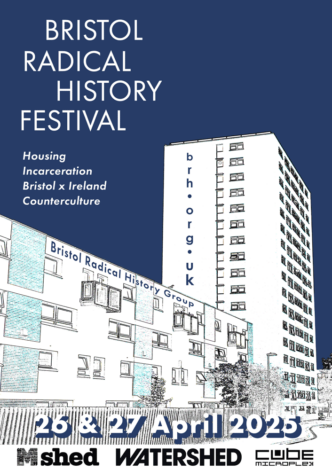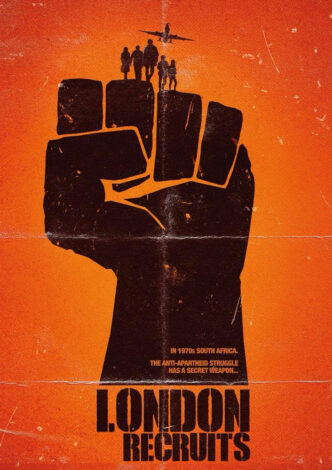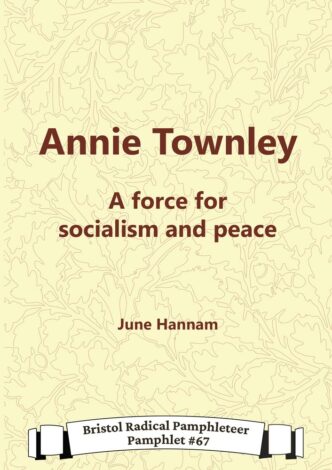The three-year strike which followed the July 1984 refusal of eleven workers at Dunnes' Stores Henry Street branch in Dublin to handle South African goods is perhaps the most celebrated episode of anti-apartheid activism outside Southern Africa, yielding memoirs, academic scholarship, radio and television documentaries and even a play. While still recounting the essential narrative of the strike for those unfamiliar with it, Padraig Durnin's talk will explore what made it exceptional in […]
BRHG brings together a selection of posters of the Mozambican Revolution from the ‘Our Sophisticated Weapon’ exhibition and other archival material relating to the campaign for independence and the ensuing civil war. Speaker: 11.30am - Dave Spurgeon will guide you through the exhibits. Dave will provide a brief history of Mozambican independence, how it supported and inspired liberation struggles across Southern Africa and the price it paid which impacted its own development. He will identify […]
The Greater Bedminster area was once covered by coal mines stretching from East Street to Long Ashton. This walk will take you around the sites of nine of the mines, each of which have their own stories, many ending in tragedy for the mineworkers. Although there is little left above ground now, this will soon change with plans to memorialise the memories of the thousands of almost forgotten working class Bristolians who worked, and often died, in the deep pits below the surface of Bedminster, […]
Chris Bowkett’s talk focuses on the untold history of Stapleton Prison, the home of captured soldiers and sailors during the French Revolutionary and Napoleonic wars. Using stories of the prisoners themselves, this talk reveals the surprising amount of freedom offered to Britain’s “enemies” whilst in captivity, contrasted with their biggest problem: boredom. This talk covers both the inventive and self-destructive ways “the miserables” occupied their time at His Majesty’s pleasure.
Mary Muldowney will give an overview of the appalling abuses that took place in many of the mother and baby homes in Ireland since the foundation of the state in 1922. The homes were supposed to provide safety and support for unwed mothers at a time when there was considerable stigma attached to having sex outside marriage. They were mainly run by religious bodies, predominantly Roman Catholic nuns, and the regimes they established had more to do with punishing the ‘sins’ of the mothers than […]
In the 1960s it looked as if the opposition to the apartheid regime in South Africa had been crushed. Many of the leaders of the African National Congress has been imprisoned and BOSS, the regime’s ruthlessly efficient police force, suppressed any sign of resistance. But a group of South African exiles in Britain were determined to fight back. Ron Press was one of the 156 opponents of apartheid arrested in 1956 on the charge of high treason – they included Nelson Mandela – and he took part in a […]
Annie Townley (1878-1966) Annie Townley: A force for socialism and peace describes a remarkable journey from working-class Lancashire textile mill worker to employment as a Bristol-based organiser in the suffrage and labour movements. In many cases using Annie’s own words, June Hannam brings to life a character dedicated to working-women’s rights and social justice. “Some of us who have been called dreamers and who believe in Socialism, wonder if it had not been better for our City Fathers to […]
The Institute for Social Ecology (ISE) was a significant flowering of political ecology from the 1960s and 1970’s counterculture. It was co-founded in 1974 by its most prominent thinker, Murray Bookchin, and Dan Chodorkoff. Bookchin wrote extensively about food and agriculture from the early 1950s. In 1962, his first book on pesticides appeared, shortly before Rachel Carson’s more famous Silent Spring on the same topic. As an autoworker brought up in The Bronx district of New York, he was an […]
Stefan Szczelkun will read from his book Plotlands of Shepperton - a unique artist’s book on a massively under-researched area of the history of housing, soon to be re-released in large format. Szczelkun's commentary on Britain's plotlands reveals the houses to be haunted by their radical history. Do they contain a key to the ‘housing problem’ that the establishment dare not countenance? Following his reading, Stefan will discuss this and more in conversation with BRHG's Paul Smith.
Paul Smith’s talk will draw on his research into the history of Hartcliffe, designed by planners in the 1940s on the garden city model, built as a housing estate in the 1950s. This tale of the steady removal of planned facilities and the reduction in the quality of homes presented huge challenges to a community of ‘pioneers’ exported to the outskirts of the city. The story of Hartcliffe was repeated across the country as estates were built on the edges of towns and cities. This story has […]


